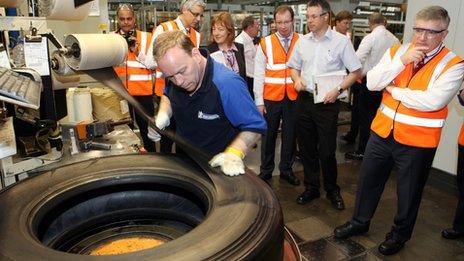Michelin Ballymena tyre factory to close in 2018
- Published
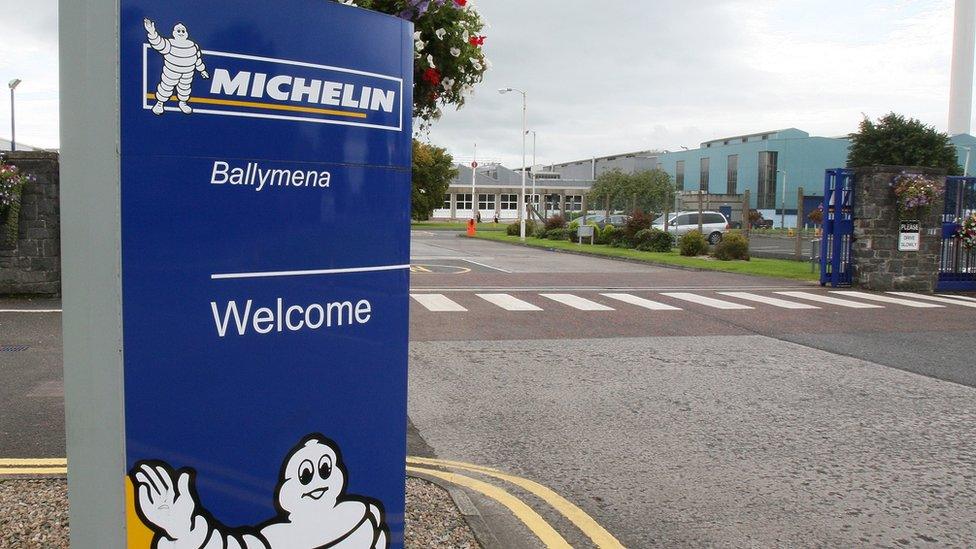
The factory produced its first tyre in December 1969
The Michelin tyre factory in Ballymena, County Antrim, is to close in 2018 with the loss of 860 jobs.
The decision is part of restructuring which will increase production in Dundee and modernise another facility at Stoke-on-Trent.
The company said, external the decision had been made due to the "significant downturn" in demand for truck tyres in Europe since the financial crisis of 2007.
The Unite union said it was "devastating news".
Michelin staff spoke following news of the plant closure
Unite's Davy Thompson said in addition to the workers directly employed by Michelin on the site, "there are approximately 500 contractors and many more in the wider economy who now face the threat of redundancy as a result of this announcement".
"These were highly-paid, secure jobs reflecting the progressive employment practices of Michelin and their loss will devastate the retail and services economy in this region," he said.
Unite's regional coordinating officer, Davy Thompson, said it is not only the 860 staff who will be affected
In its statement, Michelin said: "There is a strong need to reduce overcapacity and concentrate Michelin truck tyre production in larger, more competitive sites.
"Despite great efforts and progress being made in previous years, other European plants are still more competitive than Ballymena."
It said it would release more than £5m to help company start-ups, fund expansion at existing businesses and supply investment to attract new businesses to Ballymena.
The company also said it would be speaking to workers about enhanced redundancies and would facilitate any staff who wanted to go and work in any of its other plants in the UK.
Plant manager John Milsted: "We have made a lot of efforts over the last few years to become more productive"
As part of its overall restructuring, Michelin has announced investments of £65m at its Dundee and Stoke sites which it says will create 100 jobs.
The Ballymena factory produced its first tyre on 3 December 1969.
It produces about one million bus and truck tyres per year, with more than 70% of its total production capacity being exported, chiefly to North America.
The company had been warning for a number of years about the threat to the future of the Ballymena plant caused by high energy costs.

Analysis BBC News NI Business Editor John Campbell
"This is pretty horrendous for Ballymena.
"There's going to be about 900 well-paid manufacturing jobs going here.
"Even if many of those people find new work, the sort of work that's been done here, this kind of manufacturing work employing big volumes of people paying quite good salaries, that is not going to come back, that sort of work is not going to come to Northern Ireland in those sort of numbers ever again."

'Valiant fight'
North Antrim MP Ian Paisley said it "cannot be understated how big a blow this is to the manufacturing industry in Northern Ireland.
"For north Antrim this means the loss of millions of pounds of wages annually and is frankly hard to come to terms with."
He added: "The north Antrim factory has put up a valiant fight, but today they have bowed their head."
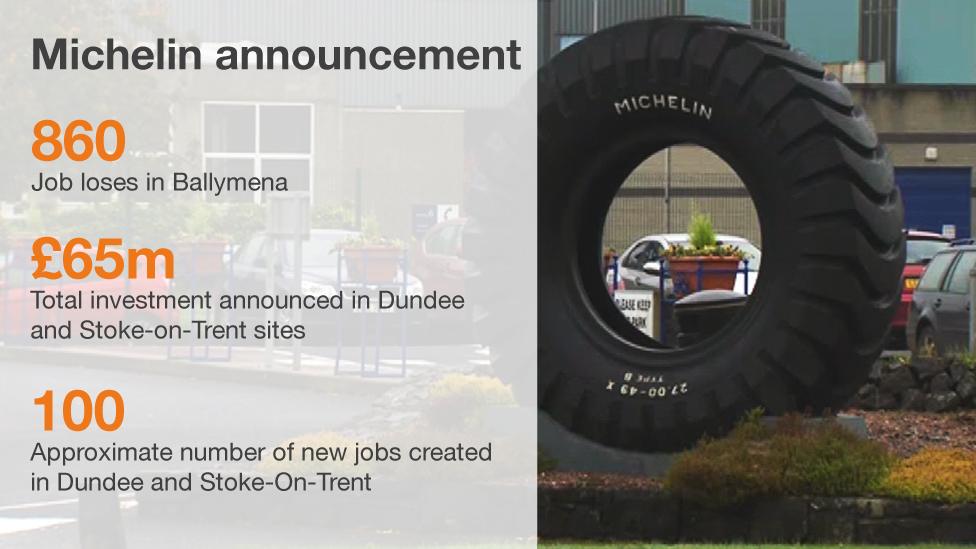
Northern Ireland first and deputy first ministers Peter Robinson and Martin McGuinness said in a joint statement that it was "a devastating development for the workers, their families and indeed the wider Ballymena area".
"The [Northern Ireland] Executive will make every effort to alleviate the impact of the job losses and ensure the necessary support is available to those affected directly and indirectly," they added.
Michael McGaughey, who has worked at Michelin for 18 years, said the news of the closure had come as a shock.
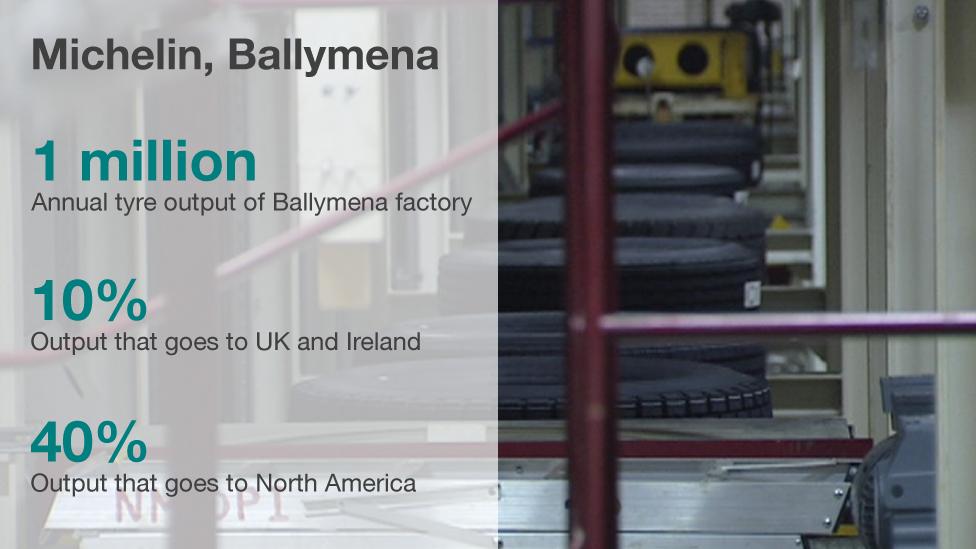
"There has been talk about it for a long time - with the economic situation worldwide, everybody thinks something is going to happen somewhere, but you never expect that it's going to happen on your own doorstep," he said.
"It will be devastating for the community - you're talking about the wages of hundreds of people locally that aren't going back into the community, so without that money being spent, it's going to have a knock-on effect on other businesses."
It is the second major jobs blow to Ballymena in just over a year. In October 2014 cigarette maker JTI Gallaher announced it would be shutting its plant in the town with the loss of 800 jobs.
Redundancies there are expected to begin in May 2016 and the factory will shut down completely in 2017.
North Antrim MP Ian Paisley said politicians must do all they can to bring new investment to the area.
- Published3 November 2015
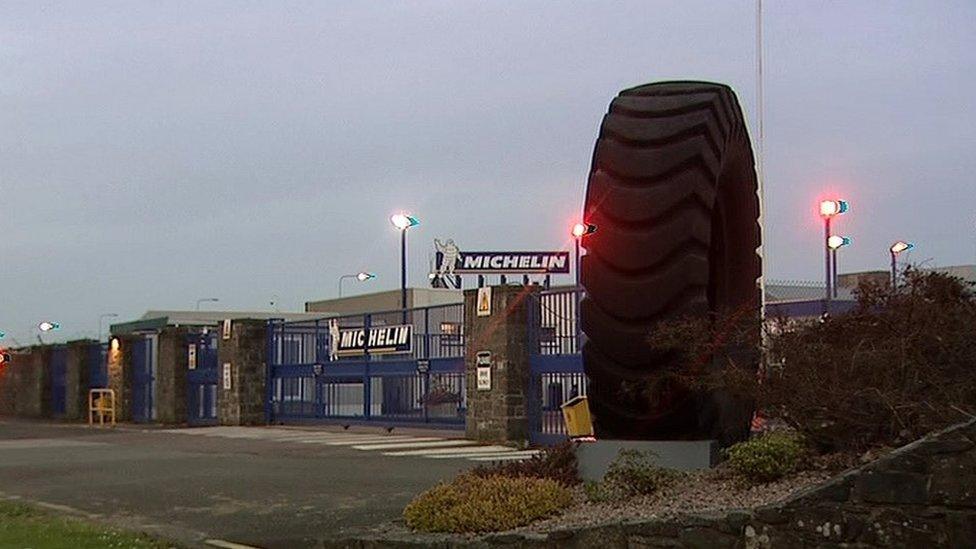
- Published9 July 2015

- Published7 October 2014
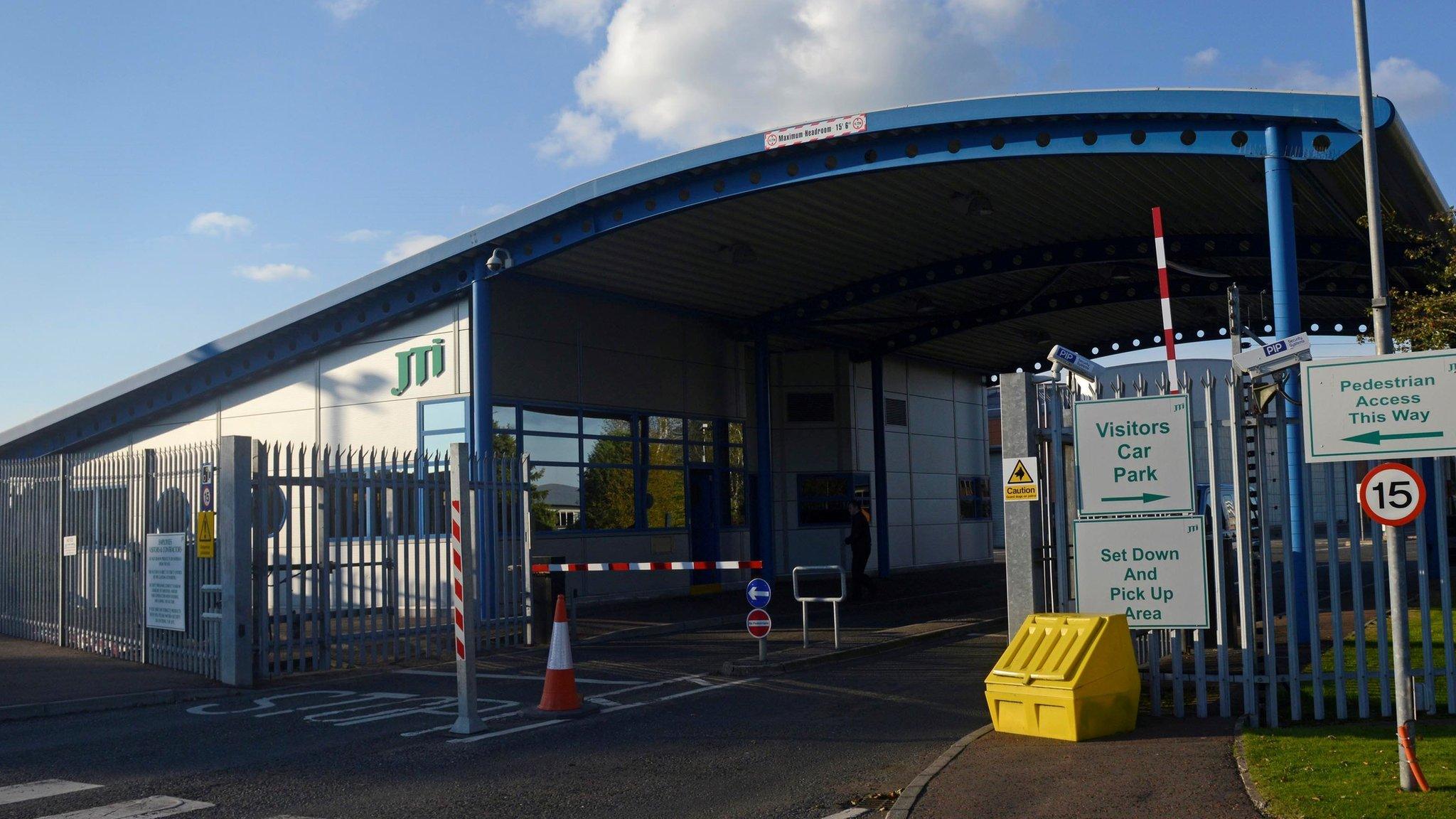
- Published6 November 2012

- Published23 May 2012
